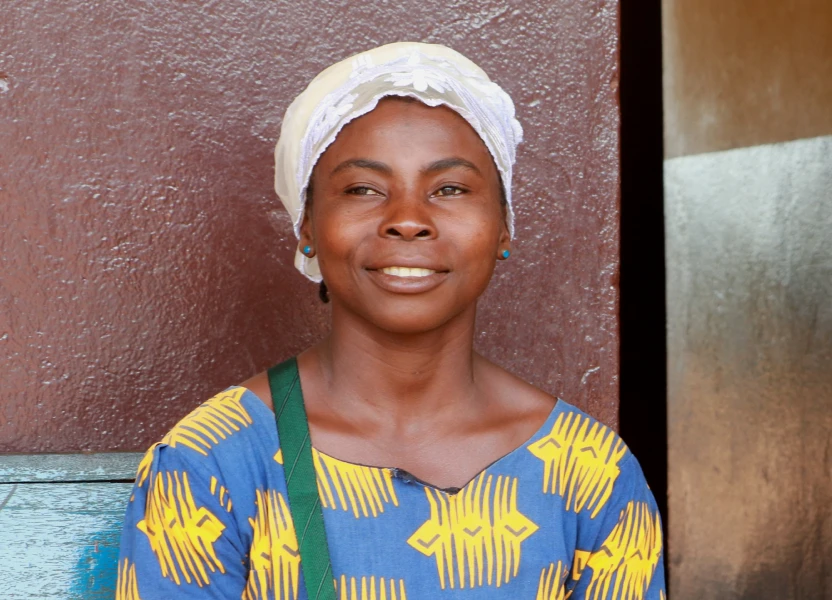
“Being a young woman is not easy. We must educate ourselves about this disease, fight against it, and prevent its spread in our country,” says Gniwali Ndangou, a peer educator and community health worker at the Centre for Youth Sexual Education and Information.
In a modest neighbourhood of Bangui, the capital of the Central African Republic, Gniwali Ndangou is rushing to work. She is a peer educator and community health worker at the Centre for Youth Sexual Education and Information (CISJEU).
The same centre saved her life.
“I am an orphan,” she says. “I am the youngest of three sisters.” Throughout her childhood, her legal guardian told her to take tablets, saying they were antimalarials and headache medicines. “I was the only one who took treatment every day, and it never stopped.”
After threatening to stop taking the tablets when she was 17 years old, her sister finally told her the truth. She was born with HIV.
Gniwali could not believe the lies. Having recently been forced to quit school as her adopted family struggled to make ends meet, she once again felt abandoned.
“Many times, I tried to commit suicide … I wanted to end my life,” she says.
Her sister Astrid tried to pull her youngest sibling out of despair and kept saying: “There are no differences between us, we are all humans.”
At Astrid’s request, Gniwali sought help at CISJEU. Established in 1994, CISJEU has been a beacon of hope for many young people like Gniwali. The centre offers community-led services, including HIV prevention and testing and peer-supported treatment initiation and adherence.
War and extreme poverty have greatly increased premature death in the Central African Republic, leaving 78% of the population aged under 35 years. Young people struggle to receive an education, and fewer than four in 10 adults are literate. Gender inequality and gender-based violence make young girls particularly vulnerable to HIV infection in the country. According to a UNICEF survey, less than 20% of young people possess comprehensive knowledge about HIV prevention. CISJEU uses peer educators to bridge this knowledge gap and provide youth-friendly services.
“We have trained and deployed 160 peer educators (80 in schools, and the others at youth centres) across different districts of Bangui and beyond, ensuring effective outreach and health and body awareness,” says Michael Guéret, a programme officer at CISJEU.
Chris Fontaine, UNAIDS Country Director, underscores the importance of peer-led initiatives: “Peer outreach workers like Gniwali are helping to reduce both HIV infections and gender inequality so that adolescent girls and young women stay healthy and do not get infected,” he says. “And in the case that they are diagnosed, they take treatment so their infants are born free of HIV.”
With support from the Central Africa Republic Ministry of Health, the National Committee for the Fight Against AIDS, and UNAIDS, CISJEU has attained the right to distribute HIV medicines among the community. The United Nations Population Fund (UNFPA) provides condoms and CISJEU regularly leads workshops about using modern contraceptives.
For Gniwali, CISJEU became more than a sanctuary. Through the support of the United Nations Children’s Fund (UNICEF) and other training, she evolved from a beneficiary to a peer educator and community health-care provider: “I received various certifications such as mobile HIV testing and psychosocial support.”
Leading discussion groups, Gniwali inspires young women to take care of their health. Her message is clear and powerful: “Being a young woman is not easy. We must educate ourselves about this disease, fight against it, and prevent its spread in our country,”